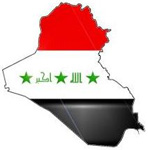 AFP: Iraq is treading carefully in its response to Syria’s deadly crackdown on protesters, balancing its ties to Iran, which backs Damascus, and international condemnation of Syria, officials and analysts say.
AFP: Iraq is treading carefully in its response to Syria’s deadly crackdown on protesters, balancing its ties to Iran, which backs Damascus, and international condemnation of Syria, officials and analysts say.
by Mohamad Ali Harissi
 BAGHDAD, August 12, 2011 (AFP) – Iraq is treading carefully in its response to Syria’s deadly crackdown on protesters, balancing its ties to Iran, which backs Damascus, and international condemnation of Syria, officials and analysts say.
BAGHDAD, August 12, 2011 (AFP) – Iraq is treading carefully in its response to Syria’s deadly crackdown on protesters, balancing its ties to Iran, which backs Damascus, and international condemnation of Syria, officials and analysts say.
Syrian President Bashar al-Assad’s crackdown on protesters, in which rights groups say more than 2,000 people have been killed since March, has drawn widespread international condemnation, including from several Arab states, the United States, the European Union and the United Nations.
But while Iraqi Speaker of Parliament Osama al-Nujaifi on Tuesday demanded “that the Syrian government stop the bloodshed” and condemned violence there, the Iraqi government has not taken a strong official stance on the violence in Syria.
Prime Minister Nuri al-Maliki made a general call in late May for Syria to enact reforms, but did not give specific proposals nor call for the violence to cease.
“Our stance… is to call on the Syrian government to make reforms commensurate with the desires of the people,” Iraqi Deputy Foreign Minister Labid Abawi told AFP.
“We don’t agree with the use of violence, whether by government forces or armed groups,” Abawi said, adding that “we regret the escalation of military operations, and we wish it would stop and reforms begin.”
But unlike Saudi Arabia, which has withdrawn its envoy, Abawi added: “Recalling the Iraqi ambassador to Damascus is not currently on the table.”
Kurdish government spokesman Kawa Mahmud added that the autonomous region’s government does not “intervene in the internal affairs of any neighboring country.”
“But at the same time, the Kurdistan government welcomes anything that deepens democracy and strengthens human rights,” he told AFP.
Analysts said that Iraq’s careful response to the violence in Syria owes much to its relationship with Iran, with which it shares a long border.
“The Iraqi government is adopting a careful attitude about the events in Syria,” said political analyst Ihsan al-Shammari. “It is an attitude linked to the political conflict between Iran and Arab countries, mainly Saudi Arabia.”
“Iran, which supports the Syrian regime, is a main player in Iraq,” he said, “so taking a different stance about the events in Syria might negatively affect many joint files between Iraq and Iran.”
“But Iraq at the same time doesn’t want to lose Arab (relations) after the Arab countries started to speak against Assad’s regime,” Shammari added.
Several Middle East countries have condemned the Syrian regime’s ongoing violent response to demonstrations, with the Gulf Cooperation Council, which groups six Arab states, urging an end to the “bloodshed” on August 6.
Saudi Arabia, Bahrain and Kuwait have recalled their ambassadors from Damascus.
“The Iraqi government is taking no position and speaking generally,” said Aziz Jabr, a political science professor at Baghdad’s Mustansiriyah University.
“This issue is linked to the Iranian stance of supporting the Syrian regime,” Jabr said. “Iraq will lean to the Iranian side more than to that of the Arab parties.”
Despite both having been ruled by “branches” of the pan-Arab Baath party, which rose to power in 1963 in Syria and five years later in Iraq, the two countries have a history of thorny relations.
The branches rapidly moved in different directions and, in August 1980, Syria and Iraq severed diplomatic relations, as Damascus backed Tehran after the outbreak of the Iran-Iraq war.
Throughout Saddam Hussein’s rule, Syria gave refuge to his political opponents, including Maliki himself.
Relations between Iraq and Syria have generally improved since the 2003 overthrow of Saddam, which saw the Iraqi Baath party banned.
However, Iraq has accused Damascus of shielding insurgents, including those behind massive bomb attacks against the foreign and finance ministries in Baghdad in August 2009 that killed 95 people.
The ensuing diplomatic spat prompted the two countries to recall their ambassadors for a year.
“The Shiites of Iraq suffered from the Baath party (under Saddam). They look forward to a change that brings democracy to Syria,” said Shammari.
“But if Assad goes and extremist or Salafist blocs emerge, the Shiites in Iraq will oppose jihadists taking power there, if they believe that this will greatly change the equation and relationships between the two countries.”


